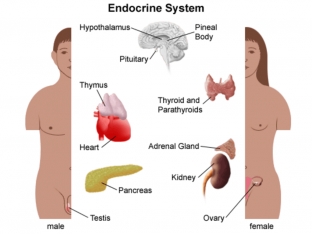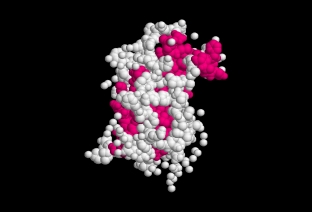Scientists have long wondered why all people are so different from each other in terms of skin and hair color, eyes, face shape, body structure, character and ingenuity, behavior and even dreams. What is the effect of hormones on the body? Individuality is given to us by hormones that regulate mental and physical characteristics in the body. The secret of conception and the further development of the fetus, how the little man will grow up: thin or fat, tall or short, smart or simply gifted, how quickly he can adapt to the world around him, what addictions will form, what emotions will prevail – everything is decided by hormonal changes that leave a genetic background.
What is the role of hormones in the human body
Thanks to the well-coordinated work of hormones, all organs, tissues and cells are connected into one powerful system that clearly regulates the work of the whole organism as a whole and this system is called the endocrine system. Hormones (from the Greek hormamo means to set in motion, induce) are active chemicals released into the blood and lymph (extracellular space) that deliver hormones to the right place – it can be one cell or many, an organ or tissues. The action of hormones depends on the functions:
- humoral regulation of processes in the body – from the pituitary gland (in the brain) with the help of hormones, human life is controlled;
- ensuring constant communication between organs, cells, processes, tissues in the body, harmonic interaction of the internal environment;
- management of the processes of reproduction, growth and maturation.
The pituitary gland (the main endocrine gland) in the brain secretes a number of hormones responsible for controlling the adrenal glands, thyroid gland, and gonads. The thyroid gland, in turn, releases hormones that affect growth and metabolism. The adrenal glands secrete hormones to control metabolism: carbohydrates and fats, and are aimed at the work of the cardiovascular system. The most famous hormones secreted by the adrenal glands are cortisol and adrenaline. The pancreas releases insulin, and if insulin levels fall, diabetes begins to develop. The sex glands are responsible for the production of hormones to regulate the process of maturation, growth and reproductive function.

How do hormones differ from other biological substances
Distinguishing properties of hormones:
- distant character – impact on organs that are at a great distance from the gland;
- specific features – some hormones may affect one organ or many cells and organs involved in the process;
- high biological activity, quickly destroyed;
- The action of hormones is carried out on living cells of the body.
Scope of action of hormones in the body
The action of hormones is distinguished by two directions: water-soluble hormones that do not penetrate into cells, but act at the level of the cell membrane, and the second type – passing (fat-soluble), which penetrate the cell membrane and begin to act in the cytoplasm. Consider the example of adrenaline. This hormone can activate its action if it connects to the desired receptor on the cell and forms secondary processes in the cell, which already begin cellular metabolism. Penetrating hormones, such as insulin, have a faster action pattern. It passes through the membrane and is activated when the molecule of the cell and the hormone are combined, which sets in motion the hormonal effect.

Varieties: action of hormones and features
Pituitary hormones: prolactin responsible for the work of the mammary glands during pregnancy, thyrotropin – produces thyroxine in the thyroid gland, corticotropin (adrenocorticotropic hormone) – acts in the adrenal glands and secretes cortisol, oxytocin is responsible for the flow of childbirth, vasopressin (antidiuretic hormone) is aimed at maintaining fluid in the body, growth hormone – somatotropin is aimed at ensuring the proper physical development of the body.
Thyroid hormones: thyroxine is aimed at accelerating metabolism, triiodothyronine controls the accumulation of calcium in the body and its distribution.
Pancreatic hormones: glucagon increases blood glucose, Insulin is responsible for regulating blood sugar levels.
Adrenal hormones: cortisol activates the body's defense function during stress, adrenaline is released when a person feels fear or danger to a person, aldosterone controls the level of salt in the body.
Sex hormones: estrogens regulate the menstrual cycle and pregnancy, progesterone is responsible for the successful bearing of the fetus, androgens are called male hormones, also called testosterone.






Add a comment